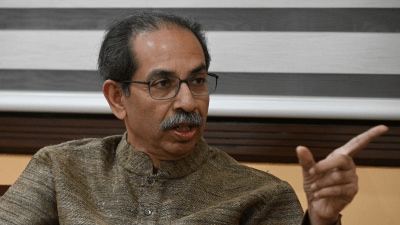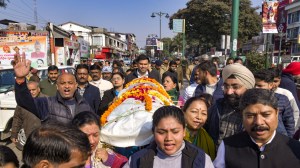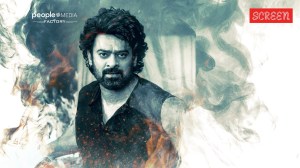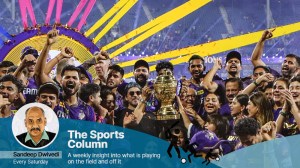Upstaging the writer
For the last few years the Prithvi Theatre in Mumbai has been bringing groups from abroad for its annual festival. None of the groups are ...

For the last few years the Prithvi Theatre in Mumbai has been bringing groups from abroad for its annual festival. None of the groups are well known; the productions would probably be performed in the fringe theatres in their home countries and perhaps to no great acclaim. Nevertheless, seen together, they appear to indicate some of the trends prevalent not just in contemporary theatre but in other spheres as well. And the most striking feature that seems to emerge is the complete absence of or, at least, the diminished value of plot. By plot I mean not necessarily a story with a conventional beginning, middle and end but the traditional idea of a script, written by a professional.
The catalogues for instance reveal in most cases either the absence of a writing credit or a director who doubles up as the writer. Speaking to some of the groups you find that the play actually emerged out of brief workshops, where the participants had nothing but a bald situation as in for example: there is a marriage and something goes wrong8217; or a stranger walks into a room8217;. What are the results of such an approach? From what I have seen there are two kinds.
At one end, plays without words or a formal plot can be brilliantly evocative. De La Guarda, a play that took New York by storm last year, takes place above the heads of the audience. It starts with shadows above a white screen that the performers rip through, raining water and confetti and picking up people from below to take them on breathtaking trapeze swings. Performers race up and down the sheer walls to the sound of primordial beats and screams leaving the audience with an indescribable energy. Two years ago, a play on the tragedy of Yugoslavia had people walking on stilts, flaming torches, whips and burning shirts 8212; a trifle literal perhaps but effectively gloomy. Pondicherry-based director Veenapani Chawla8217;s latest work, Ganpati, evokes the idea and myth of the elephant god largely through physical gestures and drum beats.
For the most part, however, plot-less plays in the sense described above tend to be without drama. There is a great reliance on props and other media. The French, Ubu, had a couple enacting a whole play within a play with vegetables as the characters; the recent Fish, from Northern Ireland used film footage as a backdrop and loud music. Other plays tend to rely overly on the actors8217; skills as dancer, musician and so on. And still others that follow a more straightforward narrative path end up being insipid slices of life. The experience of a play is being brought increasingly close, either to dull, mundane, life or to that of a variety entertainment act where the skills of juggler, magician and mime artist are on display. And while some of it can be entertaining it has its limits. Why is this happening? What has caused this return-to-the-basics approach?
To some extent I believe the patterns apparent in the random collection of plays echoes wider socio-cultural trends. One is the idea of convergence, of artists in one media using elements from or even making forays into other media. The other is the cult of the individual and the sway of pop psychology/therapy, which have combined to give greater significance to personal fantasies than ever before. Both phenomena contribute to the diminished importance of skill. That an artist may be a lousy photographer does not necessarily stop him from taking pictures and exhibiting them nor does someone8217;s inner life have to be translated into art, according to current practice, for the purposes of narration. Then there is the spread of education in the arts 8212; writing courses for instance particularly in America that tend to diminish the role of inspiration and talent. There are even computer programmes that can help you write a story or a script. Some call it democracy; others, a dumbing down8217; of culture.
The specific rejection of the writer8217;s role, however, is a curious phenomenon. To some extent it can be explained particularly in cinema as a succumbing to technology. Special effects and the excitement over new user-friendly gadgets have overwhelmed plot. Compare the Bond films of recent times with earlier ones, for instance, and the difference is clear. But technology alone is not the culprit. Indian cinema these days does not accord a role to the writer which it did even in the seventies, when Salim-Javed produced their best-known work. Nor does one hear of lyricists, although music directors are celebrated in their own right.
Directors, both in film and in theatre, complain about the lack of good writers. but with interference from directors or even directors writing their own scripts, there doesn8217;t appear to be much recognition of writing or plot creation as a separate specialisation. Perhaps there is another reason for this. Perhaps everyone just wants to tell their own stories. But is that necessarily a good thing?
Indian cinema these days does not accord a role to the writer which it did even in the 8217;70s


- 01
- 02
- 03
- 04
- 05





























